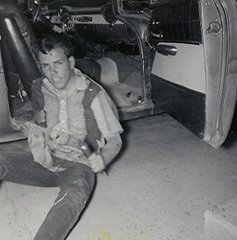
Yorick’s Skull had no ears but then Hamlet had plenty to say. With all that he had to say he just struggled to know what to do. Sometimes words are not enough.

Yet without words the most spectacular scenes are empty.

“My Words fly up, my thoughts remain below:
Words without thoughts never to heaven go.”
Earlier today I went to the grocery store to get Zach’s passport picture retaken. It takes about 10 minutes to get it done and while we waited I walked by some books all out with a nice discount on them. I noticed one that said something about “Words”. The message was that it was not so much a matter of what they were as it was about what the meant to those that heard them. Inside I noticed a chapter about controversy. It said that the President probably knew this principle very well. The more complicated the controversy that was being discussed the better it is to use “short sentences” to comment about it, the chapter claimed. I did not read the chapter, after all it was just 10 minutes total time that we had to kill. I did not see, as I flipped through the chapter, the idea that the listener would be better able to fill in the blanks and draw their own conclusion about what a short sentence means if the response was very short. Keep the readers minds on the problem rather than ones lack of solution.
Add to this "deep insight into words" the idea that my own blogs are somewhat full of words but often the picture is really what I am thinking about.
Nietzsche was a German writer and “thinker”. He thought that by the time that a thought made it into words it more or less had lost much connection to the original thought. Words for him were just reflections of thoughts already more or less gone. Dead was how he put it.
Shakespeare, on the other hand, seemed to create ideas in the reactions to his words. Ideas came from rather than being the cause of his words. He seems to be at his best in the dialog he created. His language seemed to portray character better than anyone before or since has done. People listen closely to the words spoken in his plays. They seem to overhear themselves and the shock sometimes leads to real change but always seems "real". He showed that with the use of words one can most clearly see character and personality. The words are not just an ideal or a poster board for a point of view but really seems to what we find in ourselves and others. .
"My words fly up, my thoughts remain below: Words without thoughts never to heaven go."
These words suggest a picture. The King on his knees prays, not so much for forgiveness for his "rank" offence in killing his brother, but rather that he will get away with it. Hamlet enters, unseen by the King, and considers killing the King at prayer. He does not, however, fearing that the King will then go to heaven. The King rises from prayer, never having seen Hamlet, and utters the words above, revealing his own knowledge that his prayer is invalid, and consists of words but no true feelings of remorse.
Words can be empty or full. With true feelings and remorse or without. They can reflect our inner thoughts or just make a connection happen. Sometimes it helps to see the picture.












No comments:
Post a Comment